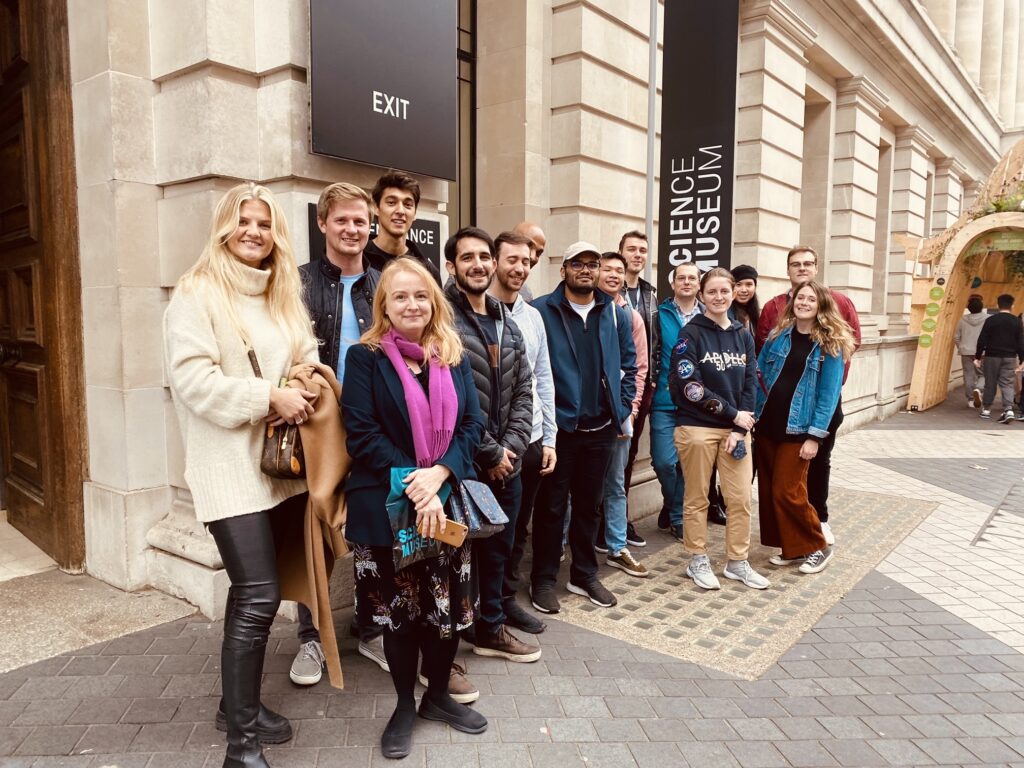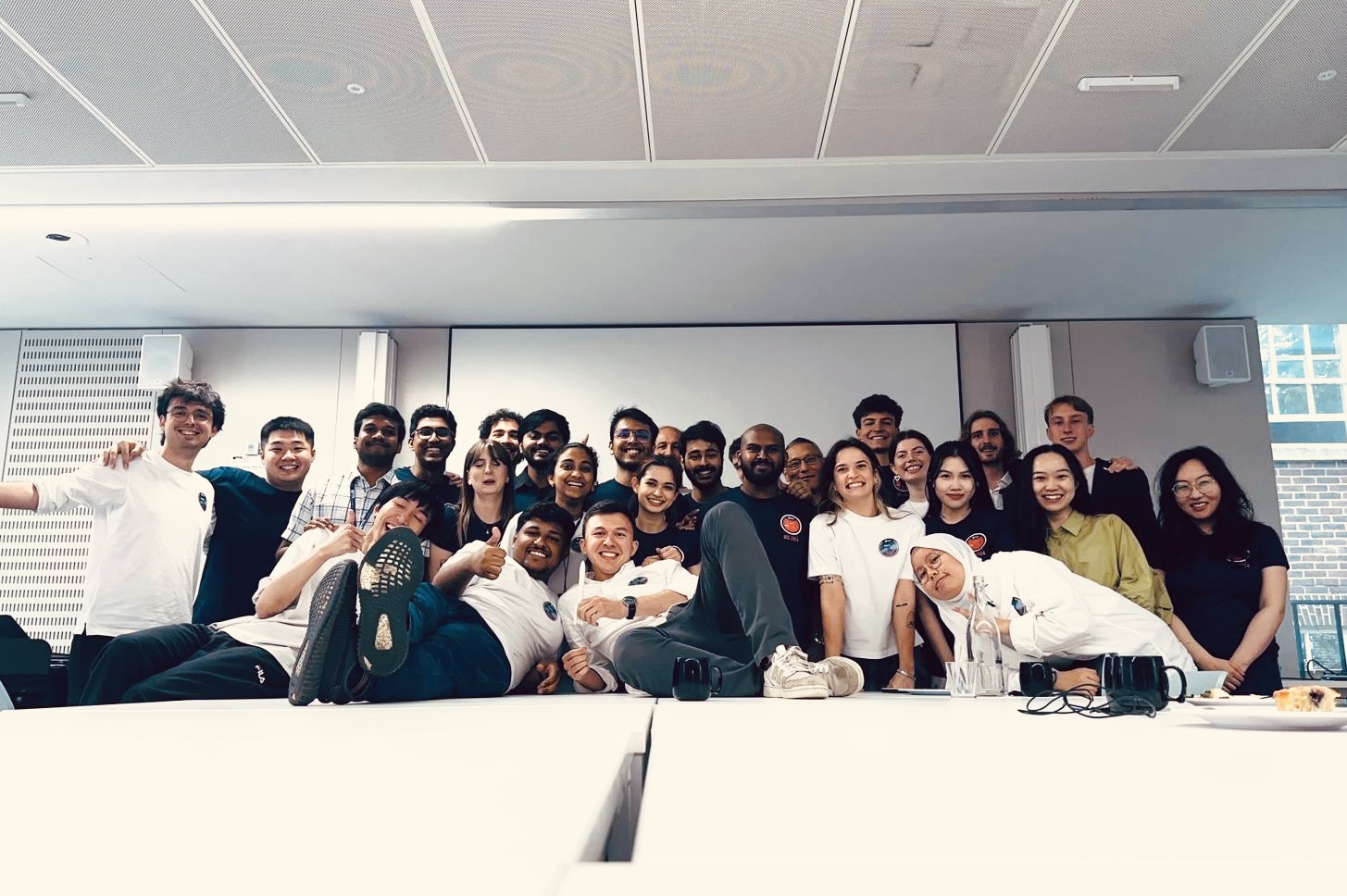It’s 2025, but the universe is still full of mysteries; scientists have only scratched the surface, understanding just 5% of it. But for Brahma Gopalchetty, that’s precisely what makes space science so exhilarating. “Since childhood, I have always been interested in exploring new worlds,” he says. “This passion has driven me to pursue an unconventional career in space science, where I can do something new and exciting.”
After spending a year in the Indian space industry, Gopalchetty felt ready for a new challenge. “I wanted to explore a new frontier, which is why I chose to enrol at University College London (UCL),” he says.
Receiving the UCL Global Master’s Scholarship made that leap possible. Coming from a middle-class family in India, the scholarship gave Gopalchetty access to opportunities he wouldn’t have had otherwise.

MSSL offers advanced testing facilities for both space and ground technology. Source: University College London
UCL has a long and distinguished history in space research. As one of the first universities worldwide to conduct scientific observations in space, its groundbreaking work led to the launch of the Mullard Space Science Laboratory (MSSL) in 1966. A key part of the Department of Space & Climate Physics, MSSL has since become the UK’s largest university space research group, located in a Victorian mansion surrounded by breathtaking views of the Surrey countryside.
MSSL scientists explore everything, from the Earth’s climate to the most distant galaxies, using some of the most advanced instruments available. But what really makes it stand out is its unique capability to design, build, and test instruments and spacecraft systems on-site.
And if you’re a student here, you get to learn from the very experts leading these international space missions.
Over the years, MSSL has played a vital role in advancing space exploration. It has contributed to 71 orbital space missions and 200 rocket launches and powered three of the largest astronomical focal planes in space: Euclid, Gaia, and PLAnetary Transits and Oscillations of stars (Plato). Most recently, MSSL instruments are operating on nine international space missions, with two more (SMILE and Plato) set for launch within the next year. Research is also underway for upcoming projects, including SOLAR-C, Vigil, and the Rosalind Franklin ExoMars rover.
UCL’s impact reaches far beyond its own research. Its academics have led mission concepts selected by the European Space Agency (ESA), including CryoSat and Comet Interceptor. And through collaborations with NASA, Japan Aerospace Exploration Agency (JAXA), CAS Space, and Indian Space Research Organisation (ISRO), MSSL is making a global impact on space exploration.
For students like Gopalchetty, just being part of this ecosystem has been nothing but transformative. “I’ve gained hands-on experience with state-of-the-art technology and had the opportunity to work on real-world projects alongside leading experts,” he says. “This practical exposure has been invaluable in preparing me for the challenges of the space industry.”
Gopalchetty’s MSc in Space Science & Engineering is one of four MSc degrees offered in collaboration with the UCL Centre for Systems Engineering (UCLse). UCLse is another key part of the Department of Space and Climate Physics, founded on the expertise developed to deliver our space hardware programme.
The MSc in Space Science and Engineering has two pathways. Space Science students learn spacecraft systems, instrumentation, the space environment, operations, and project management. Meanwhile, Space Technology students focus on the practical application of space technology in industrial settings.
“As an electronics engineer working in the space sector, it helped me appreciate what I work on from a systems perspective and based on mission definition. The course really helped me understand the nuances of space system design and its dependence on science requirements, mission design, proposing a new space mission, and so on,” says Gemi George, a recent graduate.
Her favourite part of the MSc was the group project, where they designed a mission to the edge of the Heliosphere. “It felt like we were working on a real proposal for a space agency,” she says.
This was, by no means, George’s only memorable recollection. Throughout the year, her department was “very helpful and organised several events,” each a more wholesome and horizon-broadening experience than the last.

For nearly 200 years, UCL has welcomed students from all backgrounds, promoting new ideas, creativity, and collaboration across different fields. Source: University College London
At UCL, students are part of a cross-disciplinary community that includes leading experts across the university and its global partners. In space and climate sciences, this means collaborating in space science and instrumentation, space policy, off-world living, and more.
One example is the ESA_Lab@UCL, established by the ESA. Covering the widest range of space-related themes of any ESA_Lab, it offers students a unique opportunity to engage with cutting-edge research and industry advancements.
With world-class faculty, pioneering research projects, and strong industry links, MSSL is the launchpad for a career in space. Graduates contribute to advancements in astrophysics, solar system science and space instrumentation, and have found careers that span spacecraft engineering, space policy, space economy, and everything in between.
Follow MSSL on X and University College London on X, Facebook, YouTube, Instagram, and TikTok













